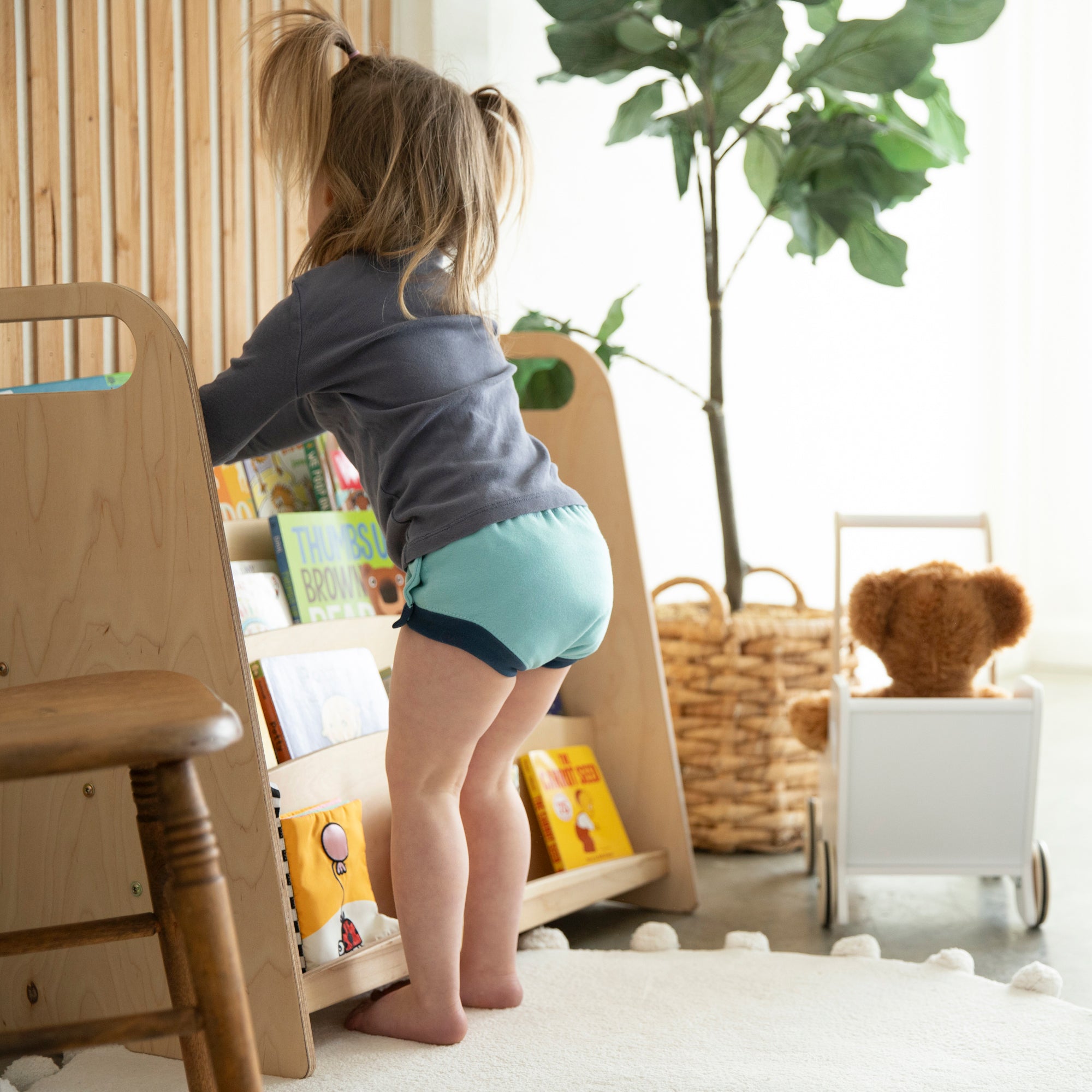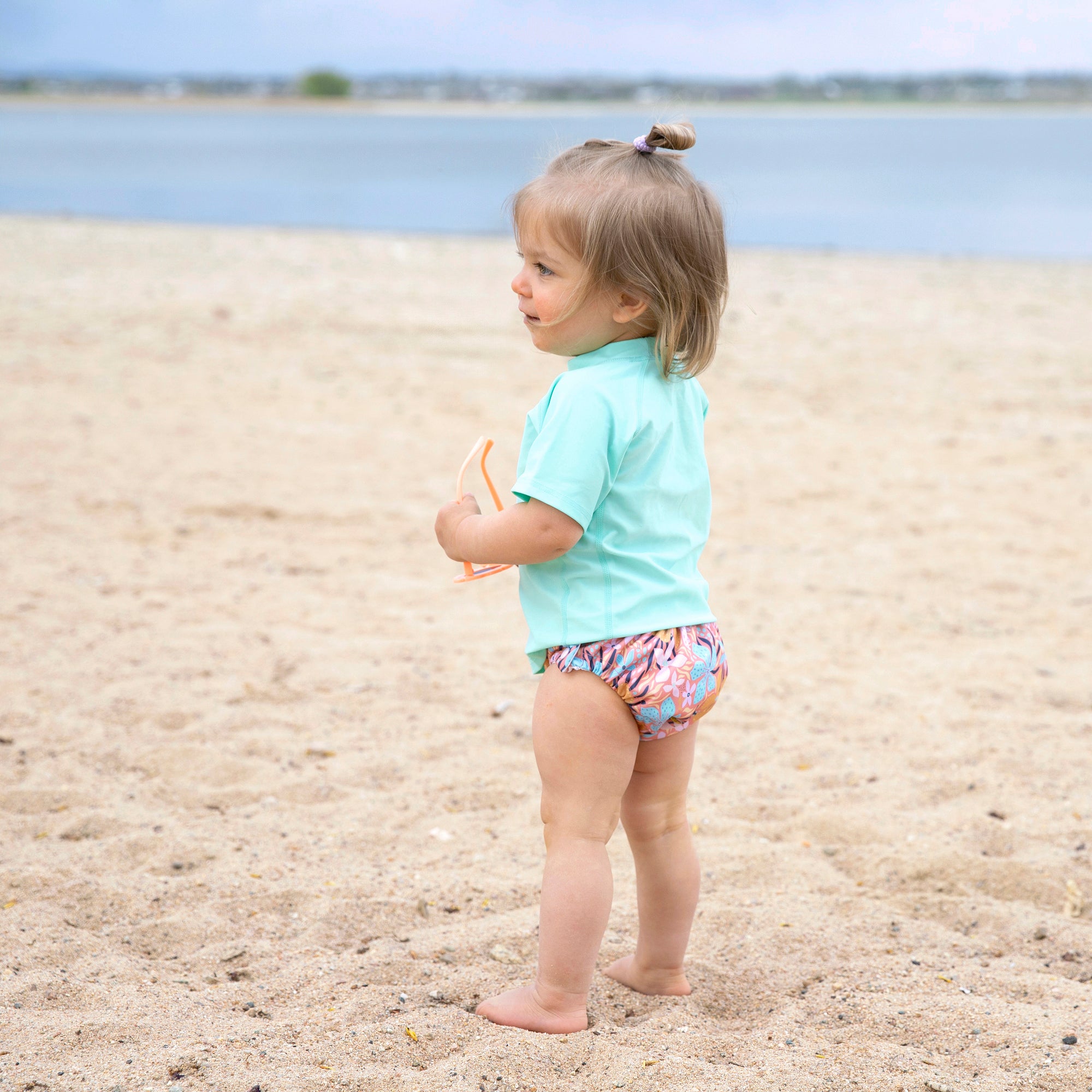
Newborn Diaper Laundry
When you hold your tiny little baby in your hands, you will spend countless hours marveling at the exquisite detail of their little body. The toes, the fingers, the ears, the nose...And you will also spend countless hours marveling at how that perfect little body can produce SO MUCH POOP! An absolute machine dedicated to not only generating copious amounts of it, but also being able to project it across a room and into your master closet across the hall (true story). The good news is, even at this stage, diaper laundry is incredibly easy. Until your baby's bowel movements change form from liquid to semi-solid (meaning it isn't completely runny and has some texture to it), absolutely nothing needs to be done with it. A good rule of thumb is that you don't have to spray or dunk poopy diapers until your baby produces enough poo with the texture that you could spread over a piece of toast. Simply plop in the wash and let the machine do the work! You can rinse if you want to, but it is optional. Keeping the water temperature hot will release most stains (make sure your detergent is a good one!), and stubborn stains can be sunned out, sprayed with lemon juice, or Shout stain remover gel if they are sticking around. Diapers will add up quickly, so making a full load every 1-2 days will be easy.

Watch #ThirstiesLive Ages and Stages of Diaper Laundry
Diaper Laundry & Starting Solids
Once your baby starts solids, you will notice a pretty substantial change in their bowel movements, and once fully on solids, another one into fully formed and solid bowLearn how your baby's ages and stages of development through newborn, starting solids, and approaching potty training will impact your diaper laundry.el movements. In *any* stage of your child's life, new foods or illness will mean less than formed bowel movements will happen from time to time. Formed movements are easily "ploppable", just roll them off into the toilet, flush, and then take care of the remaining waste by spraying or dunking to remove before putting the diaper in the pail. A diaper sprayer can be an invaluable tool at this stage, but workarounds of dunking/swishing are easy to do without it becoming messy. You might notice your quantity of dirty diapers decreasing a little, as babies tend to hold it for slightly longer periods of time, but washing every 1-2 days is still important to keep odor and stains at bay.
Diaper Laundry & Approaching Potty Training

Many babies will start the potty learning process at this stage, so the time your toddler is in diapers may be short-lived, or, you may still have a few years ahead to master this stage. Either way, knowing how to handle the larger amounts of poop is helpful! Much like the baby stage, taking care of the semi-solid and solid waste is important, but what changes here is the quantity of diapers going into the pail. Toddlers tend to hold their urine for longer periods of time. Instead of tiny pees and poops every few minutes, they will have growing muscle control, and then release substantial amounts of urine at one time. In cloth diapering lingo this is referred to as "flooding." While there will be fewer diapers in the pail, the intensity will be stronger. Rinsing and wringing out nighttime diapers and particularly strong or full diapers can be helpful. If you need to bulk up loads to make sure diapers still get washed every 1-2 days will help consider adding hand towels or other household items to the diaper laundry.
Remember, at every stage Thirsties recommends this wash routine:
- Prewash
- Hot wash with detergent
- Extra Rinse
- Hang dry or machine dry on low




Fleece liners are a big help! You can easily make your own from scrap polar fleece.
You're viewing 6-6 of 6 comments